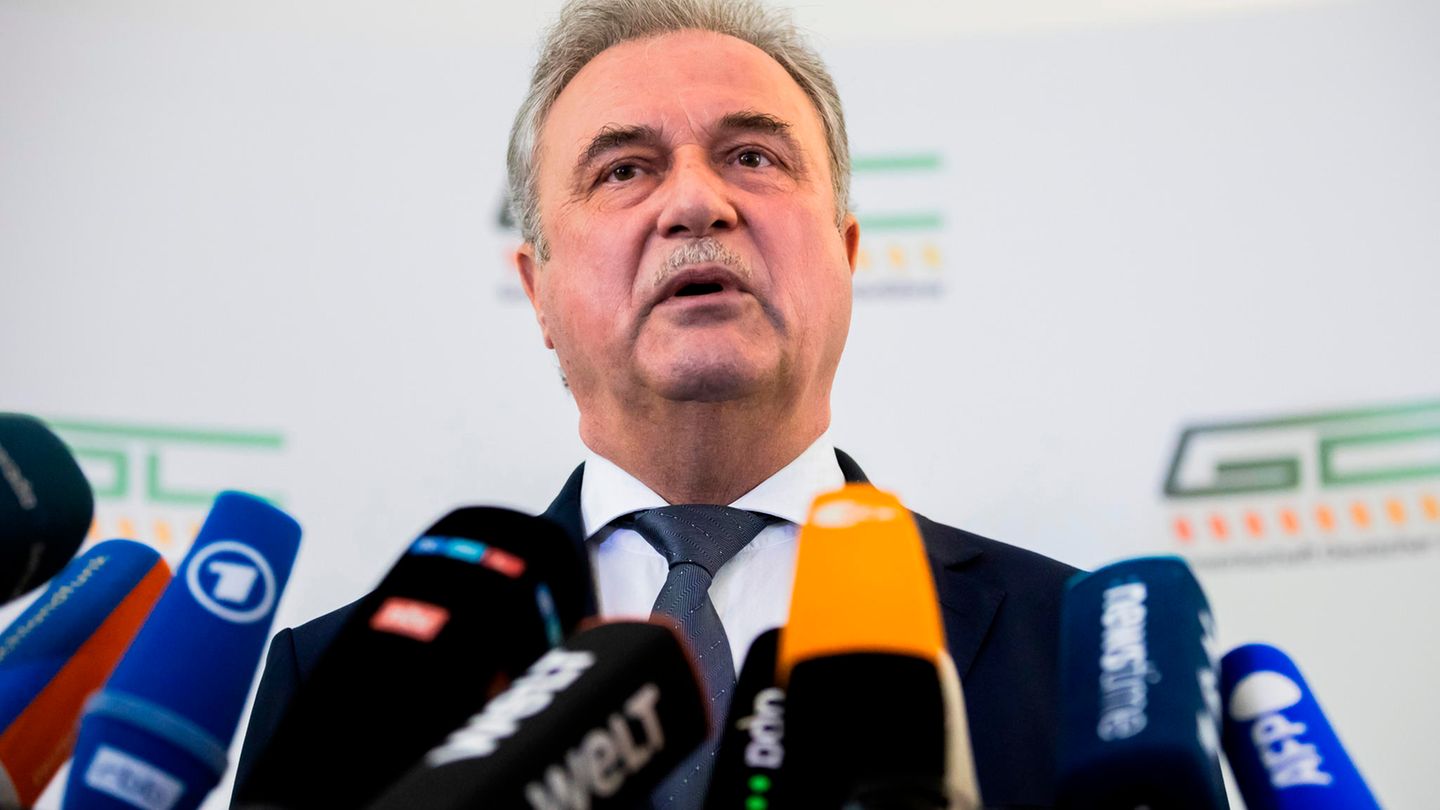analysis
The GDL wants to paralyze German rail traffic for six days – a new record. Even indefinite rail strikes now seem possible. Could judges or arbitrators still contain Claus Weselsky’s train drivers?
GDL boss Claus Weselsky threatened at the beginning of December: From January onwards, the rail strikes could become “longer and more intense”. Now the train drivers’ union is getting serious. According to the announcement, rail traffic will be paralyzed for six days from Wednesday to the following Monday. Freight traffic should even be at a standstill from Tuesday evening.
The GDL clearly rejected the new tariff offer presented by Deutsche Bahn on Friday – it speaks of a “refusal and confrontational course” on the part of the employer, and there is “no trace of any desire to reach agreement”. Deutsche Bahn, on the other hand, criticizes the cancellation of the GDL and the renewed strike as “irresponsible”. Transport Minister Volker Wissing also expressed “zero understanding for this form of tariff dispute”.
The announced six-day strike would be the longest in the history of Deutsche Bahn and, according to economists, will cause billions in damage. And it could get even worse: Before Christmas, GDL boss Weselsky got the members’ approval for indefinite strikes in a strike vote. The train drivers could theoretically go on strike for weeks.
How can this chaos scenario be averted? And would anyone actually have the power to stop Weselsky and his striking train drivers?
1. Deutsche Bahn
The railway would have the power to end all strikes immediately by meeting the demands of the GDL. Most recently, the group offered 4.8 percent more money from August and another 5 percent more from April 2025. The railway is also offering an inflation compensation bonus and the option for train drivers and train attendants to either reduce their weekly working hours from 38 to 37 hours from January 1, 2026 (with the same salary) or get another 2.7 percent more money. Sounds neat, but the sticking point is not just salary figures.
The railway does not consider the GDL’s central demand to reduce working hours from 38 to 35 hours per week with full wage compensation to be feasible. A fundamental point of contention is also which professional groups apart from train drivers the GDL is allowed to conclude a tariff for, since most railway employees are represented by the competing EVG. GDL boss Weselsky insists on negotiating a GDL collective agreement for employees in the infrastructure.
2. The GDL members
GDL boss Weselsky can only remain resolute as long as his members follow him into the industrial dispute. The closer the railway’s offer comes to the demands, the more the willingness to strike could decrease. It is clear that the industrial dispute represents a financial burden not only for the railway, but also for the GDL and its members. Anyone who goes on strike is not paid by the employer, which is why the union pays strike pay on a daily basis. However, this usually does not completely replace the missing wage. The GDL’s strike fund is primarily funded by contributions from its members and has been considered well-filled in the past. The GDL does not reveal how long the financial reserves would last.
3. The courts
In the past, Deutsche Bahn has repeatedly tried to prevent GDL strikes using legal means. But most of the time it has failed in the courts. Most recently, on January 9th, the Hessian State Labor Court rejected an urgent application by the railway against the strike from January 10th to 12th. It is still unclear whether the company will try legal action again. The right to strike in Germany is not without borders. If demands are unlawful or the damage caused by the industrial action is disproportionate, a strike can be classified as illegal.
The former is the target of a lawsuit by the railway, which argues that the GDL is no longer allowed to negotiate collective agreements because it has itself become an employer by founding its own temporary employment cooperative, Fair Train. It seems unlikely that this fundamental question will be clarified in a timely manner.
There still remains the question of proportionality, which neither popular anger nor politics decide. It would depend on a judicial decision, although the right to strike would be difficult to overturn. With two decisions in 2007 and 2009, the Federal Labor Court ensured that unions are largely allowed to decide on proportionality themselves, writes Munich labor law professor Richard Giesen in a guest article for the FAZ. “To date, there is no known court decision in which the principle of proportionality was considered to have been violated.” It is unclear at what point a rail strike would exceed this threshold. In principle, unlimited strikes are also permitted in Germany.
4. An arbitrator’s verdict
If two collective bargaining parties cannot come to an agreement, arbitration proceedings can resolve the impasse. In this way, tough conflicts between Deutsche Bahn and GDL have already been resolved in the past. In 2015, an arbitration with the Thuringian Prime Minister Bodo Ramelow as GDL representative and the former Prime Minister of Brandenburg, Matthias Platzeck, on the railway side brought an end to the collective bargaining dispute. In 2021, Lower Saxony’s Prime Minister Stephan Weil (SPD) and his colleague from Schleswig-Holstein, Daniel Günther (CDU), successfully brokered a new collective agreement.
However, arbitration can also fail. And: It has to be wanted by both sides. In the last few days, GDL boss Claus Weselsky has expressed his opposition to a new arbitration procedure and definitely wants to force a collective agreement for the dispatchers. Weselsky said he would not put the question of whether he would get a collective agreement for dispatchers in the hands of an arbitrator.
Source: Stern




